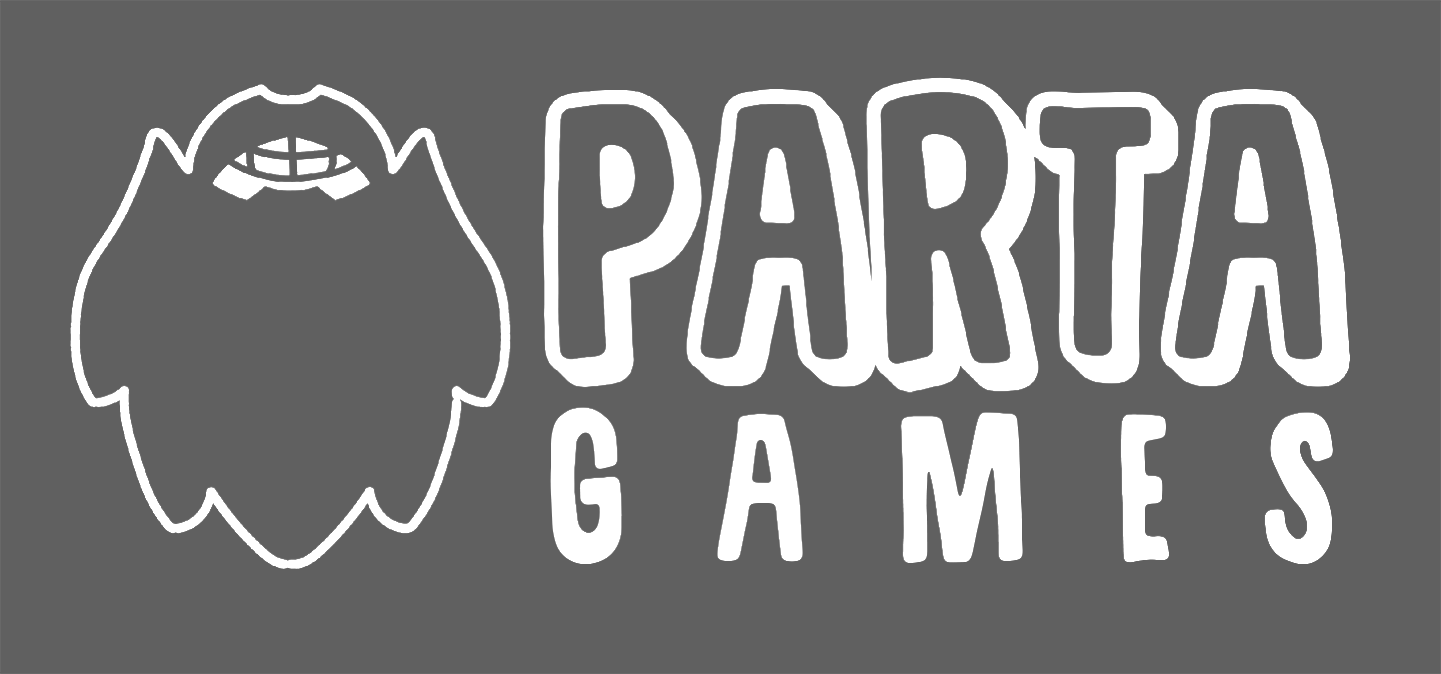Women in Games - Summary!
/WOMEN IN GAMES
IGDA Finland Turku Hub February Gathering - event summary!
The February gathering in Saaristobaari was record breaking! Turku got visitors from Helsinki, Tampere and Jyväskylä – in fact busloads of game developers. There was obviously something magnetic with this month’s theme: Women in Games. We had a stellar panel consisting of Eevi Korhonen from Remedy, Sonja Ängeslevä from Unity (and a spider in the web of the Finnish game industry), Karoliina Korppoo from Colossal Order and Agnieszka Besz from Redlynx.
What is it like for a woman to work in a male dominated industry?
KK: Korppoo has been dealing a lot with media. It is interesting that gender is something that media always brings up in their questions. In Colossal Order there are 50/50 males and females, and it became like this naturally, without effort. In the history of game development there has always been women, it is not as uncommon as many think.
SÄ: Ängeslevä hates the question. But there are still problems, in big conferences there needs to be more women in panels for example (even though we have an “all female panel” this time). How can we get more women to apply for jobs in the game industry? Women need to be more pushy to get a foot in.
EK: Korhonen says she never had any problems. She works in Remedy, a company with its roots in the demo scene, which meant that the company used to consist of “40 dudes”. But now they are 140, and about 10 % are women. EK thinks this is a matter of company age and what kind of games the company makes. Often we tend to hire people that look like ourselves. But there are a lot of talented women out there.
AB: Besz says there are clearly more male programmers. On the mobile side women are about 23 % and over all the percentage of women is 33 %.
Audience question: How has the demo scene demographics affected the situation?
EK: Has not been a part of it.
SÄ: The demo scene is not what it used to be. Now there are game jams, and there are a lot of women there. Jams are a possible way into the industry. Assembly and making demos are no longer the only way to get in.
KK: Women play different games. Based on the player base there should be a lot of women coming into the industry. Colossal Ordes doesn’t have statistics on the gender of the players, but there are no job applications from female modders.
Do women work with different types of games? Are women mostly doing art?
SÄ: A hard question. In Finland most studios are tiny, and especially ones founded by women.
EK: Korhonen used to work for Wooga, and they had more women. The internal culture was welcoming, inclusive, which is attractive for women.
AB: In the console area the majority are men, in mobile there are much more women.
Audience question: How do we find the best talent? How do we attract the best female students? How do we get them to show more courage?
KK: Colossal Order wants the best people. We hire students too, but we are mostly concentrated on filling senior positions. Something has happened in the game industry, it is no more mostly young males. They are turning 30, getting kids, and then they quit the industry. In CO the rules are that we do no overtime, 7,5 hours a day. We very rarely need to break that rule. We just do what we promise on time. By allowing people to have a life outside of the job, we get more experienced people. Proper rest also makes us more creative. Working in CO is a job, but we also love it.
SÄ: You can bring in young trainees. Talk with teachers, to also encourage girls to come. Internships to get to know the industry. Parties for networking. In Unity we have recruitment parties, without any obligation to apply.
EK: Impostor syndrome is probably very common: do I actually have skills? It holds back young people, students. You don’t even try. Find people in the industry and talk about it. Have someone validate you. Find a mentor. Everyone feels the same.
AB: Be confident and just try. There are graduate programs, for example in Redlynx, these are opportunities to learn. We are all normal people who work in the game industry.
Audience question: Is it a recipe for destruction to aim for equality, rather than just letting it happen by itself? Can’t we just aim at being good?
KK: We did that, and got 50/50. But it is important to think of the ideas you have about people, they can affect you when you hire. Preconceived ideas might affect your decision.
SÄ: I was turned down by a company because I was the first woman applying, “You might not like it here”, they said. We need to push and we need networking.
EK: You easily hire people who look like you. Diversity also means we can make games for more people, which means more money. There was an example of a game that was accidentally racist (game mechanics based on skin colour), and it took someone with a darker skin tone to test the game until they noticed the mistake…
AB: I’m against forcing, skills are important, but diversity is also important.
Is gaming ruining your (family) life, or is life ruining your game career?
AB: I also do it for myself in my “free time”, it is a passion that affects my whole life.
KK: I haven’t had time to play at home, because of work.
SÄ: Work and life are not separate things. I do a lot of different things, both for my life and for my work.
EK: Gaming ruined my posture.
Audience question: Is not being a woman in the game industry also leverage? Is it really a problem to enter the industry? In the mobile side more women play, and a good CEO would hire more women.
EK: I never felt it, I often felt boxed in. In Wooga there was one instance where I was not a fit for the team.
SÄ: Experience is what matters.
KK: When doing interviews in the US, I had a guy with me, and all the media people talked to the man. In Finland I can sometimes be seen as just a companion to someone, that I’m not someone who “works here”. When it comes to mobile games, the diversity still needs to be there. What is a benefit to me is that people remember me, because I look different. But sometimes I need to explain that I’m not “a lady who only plays causal games” (although I like them too). I often need to explain my game preferences.
EK: All people get boxed in, for example there are dress codes: T-shirt and hoodie. If you put on something “girly” it stands out in a NOT positive way. You have a feeling you should not draw attention to yourself.
Audience question: Will women steal our jobs? Is there such a fear? In some industries there is much resistance to let women in (tech, sports etc). What annoys you the most about this? How could men help?
EK: Just treat us like professionals. I’m just a human.
KK: We’re all human. Ask questions, get to know us. We all have prejudices, then we get past them.
AB: We are not that scary.
EK: And don’t get drunk and tell us we are cute!
Audience question: I work in the car industry, which is also very male dominated. You know the idea of ladies posing next to cars, have you encountered uncomfortable sexualized stuff in games?
KK: In games conferences there have been incidents with ladies in bikinis. In some countries this is more common, but in for example Sweden they are much more sensitive, never anything offensive.
SÄ: 15 years ago it was much worse. Boobs. Now not so much. The world is changing. There are many genres now, and also “boob games” for those who want that.
EK: All of the Internet… The most annoying thing is that the sexualized stuff excludes people who don’t enjoy that.
AB: A beautiful picture sells better, gender is not always the thing.
Audience question: People are often surprised at female members in E-sports teams. How will women be part of the game industry in the future?
EK: It is unstoppable progress. One day women, and all sexes, will be a normal thing in the industry. It is only a matter of time, but it is good that there are people who criticize the situation now. This normalizes the idea of women in the game industry.
KK: It is a matter of the amount of players growing. The industry needs to make more diverse games, for different players. In 10-20 years the problem will be over. There will be more people with skills that can enter the E-sport scene, they will have more training. There’s a lot of stuff around games, streaming and so on.
EK: This notion of the “gamer”, there is no such stereotype anymore. In the future games are no longer some precious guarded playhouses.
Audience question: A producer asks: do you always have to be either an artist or a programmer? What other jobs are there?
SÄ: There are many more roles now: monetization, analytical skills, producers don’t need to know programming. You don’t even need a certain kind of background, I know one designer who used to be a librarian. Get experience in order to grow into the role you wish to land.
EK: Data is huge. Communication – engaging the community, being a buffer between audience and developers. Producing videos…
AB: Games have become bigger and more interdisciplinary. Only a programmer cannot make games for a bigger audience. There is also a need for team managers, because teams are bigger.
Audience question: About genres, there are untouched markets in PC. A lot of the games are still marketed for a certain kind of male. So many genres are not explored at all! What genres could be more explored, are there some that are more easily targeted to women?
SÄ: As an investor, and knowing investors: they invest in less risky genres. It is hard to get funding for new stuff. New genres need entrepreneurs pushing new ideas. It takes a lot of time.
KK: Yes, it is difficult to get investments for totally new ideas. Some genres are insanely expensive. With a shoe string budget you make something small, and see if it sells. Simulations you can make with a small team, but they appeal to a wide audience. What do the players actually want? Money and hours go into investigating what appears to be “untapped areas”. Cities: Skylines filled such a segment.
AB: You need money to support the team, and you need to compromise – make small changes to existing genres. New genres are too risky.
EK: indies and hobbyists can push the envelope. There are new areas to explore in art installations using game mechanics for example. New tech, VR, big IP’s like Pokemon GO can bring in new things.
Audience question: about stories, and the cliché “the scruffy white guy”. Are you accused of pandering when you don’t use that cliché?
EK: Well, look at the Remedy office and the huge posters… We have had a discussion in the company, that maybe we are finished with telling the story of the “anguished white man”. I’d love to do something different…
KK: In teaching, when students use this cliché, I ask: is this the most interesting character? Would you get new players with another kind of character? Would something else be valuable? You get a tiny extra bit of attention with other characters…
Walid O. El Cheikh from Aalto University presenting Game Executive Program.
Sleepy Sentry showing their game at demo-corner.























































